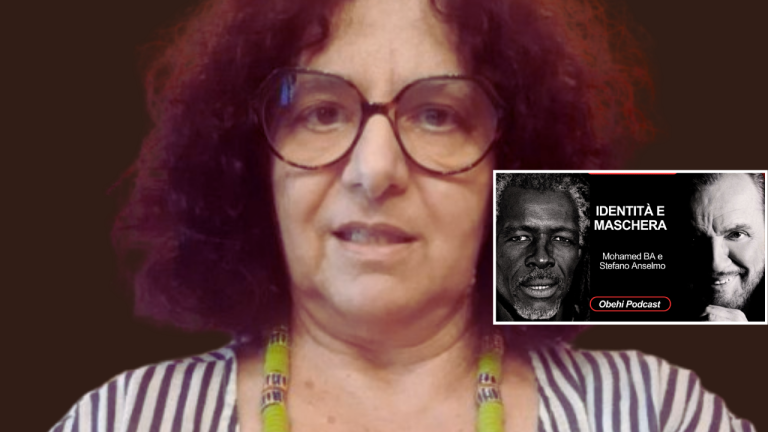Applied Transpersonal Gerontology: A Framework for Holistic Care of the Elderly in The 21st Century by Professor Oluwafemi Esan

Professor Oluwafemi Esan | Contributor on spirituality and mental health Topics
Applied Transpersonal Gerontology is a field that integrates transpersonal psychology with gerontology to focus on the psycho-spiritual development and expanded consciousness that can occur in late life. It challenges the idea that ageing is a period of decline and instead views it as an opportunity for continued growth. (Wacks, 2011)
Learn How to Leverage Your Story through our Story To Asset Framework.
Rev. Ambassador Professor Oluwafemi Esan is Professor Of Transpersonal Psychology and Education Vice-Chancellor El-Roi London University.
The “applied” aspect of the field means applying the theoretical principles of transpersonal gerontology to practical applications in healthcare and social services. The aim is to help older adults find meaning and purpose, and to foster mental and spiritual well-being as they age. Gerontology is an ancient subject, but a recent science.
In the earliest recorded histories, there is evidence that humankind speculated about ageing and the association of infirmities and death with advanced age. The processes of ageing are complex, and, combined with the uncertainties about death, they have always provided fertile ground for myth, fantasy, and wishful thinking. (Spalding, and Khalsa, 2010)
Gerontology refers to the study of ageing, research, and scholarship in all its aspects. The word is derived from the Greek word for an old man, geront or gerontos, plus the suffix logy, which refers to a branch of knowledge or science.
Geriatrics is a branch of medicine that specialises in the care and treatment of diseases and health problems of older people. Gerontology, the study of ageing, has roots that extend far back in history. Humankind has apparently always speculated about the duration of life and the nature of death.
See also How the African Diaspora is Pioneering Transpersonal Diplomatic Leadership
In many early cultures, myths about longevity and death were passed down as legends that explained humankind’s mortality rooted in ontologies. (Flett, 1998).
In gerontology, “ontology” refers to the study of the nature of being as it applies to ageing and can also refer to the development of computer-based knowledge frameworks to organize and integrate ageing-related data.
The philosophical approach investigates how ageing is understood as a fundamental aspect of human existence, while the computational approach develops formal systems (ontologies) to integrate vast, complex, and interdisciplinary data from fields such as biology, sociology, and medicine.
Philosophical ontology in gerontology: views ageing as an inherent and fundamental part of the human condition and human existence, not just a biological process. Explores how ageing is understood through social and individual interactions, emphasising a relational, process-oriented understanding of later life.
Critiques purely mind/body dualism and emphasises the physical body as a central site for identity and experience, particularly as it is impacted by ageing. The ontological foundation of mindbody dualism in gerontology lacks a holistic approach to the care of the elderly. (Green,2017)
A holistic approach in gerontology views older adults as complete individuals, addressing their physical, mental, social, and spiritual well-being, rather than focusing solely on medical conditions.
See also Education and Collaboration: How USOAD and El Roi University are Reshaping Afro-Centered Learning
This approach involves comprehensive assessments and interventions, such as personalized exercise programs, stress management, cognitive stimulation, and social engagement, to enhance overall quality of life.
Goes beyond treating illness to proactively managing physical health through preventative care, regular screenings, tailored exercise (like yoga or walking), and proper medication management. Includes activities that stimulate the mind, such as hobbies, volunteering, and learning new skills, as well as stress management techniques, such as mindfulness, to combat anxiety and support cognitive function.
Emphasises the importance of social connections, community engagement, and support systems in tackling loneliness and improving overall mood and life satisfaction. Recognises that spiritual beliefs and a person’s sense of purpose are crucial to their well-being, especially with age. (Vafeas and Slatyer,2020).
The spiritual model of gerontology views ageing as a journey involving spiritual tasks, focusing on finding meaning, hope, and purpose through relationships, self-reflection, and a connection to something larger than oneself.
It emphasises the importance of spiritual well-being for quality of life in older adults, often involving shifts in consciousness, such as those described in gerotranscendence, and encourages practices such as life review and ritual to support this process. This model suggests that spiritual growth can be a source of strength, especially when facing stress or illness.
It frames ageing not just as a physical or social process, but as a spiritual one, with its own unique tasks and challenges. A central theme is the search for ultimate meaning in life and a shift from focusing on external roles to one’s inner self. This model identifies the tension between hope and despair as a key spiritual task in ageing. Transpersonal gerontology provides holistic care for ageing in humanity. (Moberg, 2012).
Transpersonal gerontology is an interdisciplinary field that examines late life as a time for continued psychospiritual development and expanded consciousness. It views ageing not just through a biomedical lens, but as a potentially rich period for exploring meaning, purpose, wisdom, spirituality, and connecting with a broader sense of being.
This perspective extends the theories of human development beyond traditional adult ego stages to include the transpersonal or spiritual dimensions of life, such as experiencing a connection with the universe or a deeper understanding of self and others.
Ageing is seen as a unique and ideal time for psycho-spiritual development, rather than decline. The field focuses on how older adults find meaning, develop wisdom, and experience spiritual growth, often through introspection, reflection, and dealing with life’s existential questions. (Boucouvalas, 2016).
See also The Transpersonal Education Philosophy by Professor Oluwafemi Esan
Gerontology existential questions revolve around meaning and purpose, such as “What is the point of my life?” and “What legacy will I leave behind?”. Other common questions concern mortality and legacy, such as “Am I truly ready to die?” and “Will anyone remember me?”
Additional themes include loneliness, regret, and the search for personal meaning in later life, as individuals reflect on their life’s experiences, relationships, and future. These questions are applied within the theory of transpersonal ontology.
Transpersonal ontology is the philosophical perspective within transpersonal psychology that explores the nature of reality beyond the individual ego, including the interconnectedness of consciousness, the universe, and spiritual experiences.
It views reality as having levels beyond the personal, where consciousness can expand beyond the limitations of time and space, encompassing concepts like the collective unconscious and peak experiences.
This perspective acknowledges phenomena often associated with spirituality, such as mystical experiences or archetypal encounters, as valid parts of a larger, holistic reality. It proposes that human consciousness can develop beyond the ego into transpersonal stages, leading to experiences of unity with others and the universe.
Expanded consciousness: Transpersonal experiences are seen as a common denominator across phenomena in which consciousness expands beyond individual boundaries, including altered states, peak experiences, and spiritual states. Holistic view of reality: It incorporates elements often relegated to religion or spirituality into a psychological and philosophical framework, including an expanded view of self-identity that includes the environment and the cosmos, with clinical applications. (Rothberg, 1986).
Transpersonal theory can assist clinicians in distinguishing transpersonal states from psychosis, which can look superficially similar. Therapeutic goals can extend beyond managing symptoms to include helping individuals achieve self-realisation, spiritual integration, and a more profound sense of purpose.
See also Understanding Theocracy Through Transpersonal Political Leadership Development
In gerontology, the spiritual purpose of ageing involves finding and maintaining a sense of meaning, hope, and purpose, especially amid life changes such as physical decline, loss, and the prospect of death.
This purpose is often found through exploring relationships, community, and personal reflection, which can lead to greater resilience and well-being. It is supported by spiritual practices such as prayer, meditation, reminiscence, and participation in religious communities, which can improve mental and physical health outcomes for older adults.
Therefore, transpersonal gerontology provides the basis for holistic and person-centred care for older adults. The components of this care approach are ingrained in a biopsychosocial-spiritual model of gerontology. (Ferrer, 2014).
The biopsychosocial-spiritual model of gerontology is a holistic approach to elder care that views ageing as a complex interplay of biological, psychological, social, and spiritual factors.
This model expands on the traditional biopsychosocial model by including spirituality, recognising that a person’s spiritual well-being (which can include religious beliefs and other transcendent meaning) is a key resource for coping and resilience in older adults. It provides a framework for understanding the multifaceted experience of ageing, enabling more comprehensive and humane care.
Biological: This includes all physiological aspects of ageing, such as age-related changes, health conditions, chronic illnesses, and physical function. Psychological: This dimension addresses an individual’s mental and emotional state, including thoughts, emotions, coping mechanisms, personality, and subjective well-being.
Social: This encompasses factors such as family circumstances, social support, relationships, economic status, and cultural background. Spiritual: This refers to an individual’s search for meaning and connection to something larger than themselves. It can include formal religious beliefs as well as non-religious spirituality found in nature, art, or relationships. (Sulmasy, 2002).
Care providers use this model to conduct comprehensive assessments that go beyond physical health to understand the whole person. It guides the development of care plans that address a wide range of needs, from managing chronic illness to providing emotional and spiritual support.
By focusing on all four dimensions, the model aims to enhance an older adult’s overall quality of life and resilience in the face of age-related challenges. The model is also used to assess and support caregivers, who face their own physical, psychological, and social burdens.
See also Learn How to Leverage Your Story through our Story To Asset Framework.
Reference Lists
Wacks, V.Q., 2011. THE ELDER AS SAGE, OLD AGE AS SPIRITUAL PATH: TOWARDS A TRANSPERSONAL GERONTOLOGY. Journal of Transpersonal Psychology, 43(2).
Spalding, M. and Khalsa, P., 2010. Ageing matters: humanistic and transpersonal approaches to psychotherapy with elders with dementia. Journal of Humanistic Psychology, 50(2), pp.142-174.
Flett, M.L., 1998. Ageing and values: A descriptive study of transpersonal values in individuals between the ages of 65 and 95 (Doctoral dissertation, Institute of Transpersonal Psychology).
Green, B., 2017. Gerontology and the construction of old age. Routledge.
Vafeas, C. and Slatyer, S., 2020. Gerontological nursing: A holistic approach to the care of older people. Elsevier Health Sciences.
Moberg, D.O., 2012. Ageing and spirituality: Spiritual dimensions of ageing theory, research, practice, and policy. Routledge.
Boucouvalas, M., 2016. Toward transpersonal adult development. Adult Learning, 27(1), pp.30-37.
Rothberg, D., 1986. Philosophical foundations of transpersonal psychology: An introduction to some basic issues. Journal of Transpersonal Psychology, 18(1), pp.1-34.
Ferrer, J.N., 2014. Transpersonal psychology, science, and the supernatural. Journal of Transpersonal Psychology, 46(2).
Sulmasy, D.P., 2002. A biopsychosocial-spiritual model for the care of patients at the end of life. The gerontologist, 42(suppl_3), pp.24-33.





